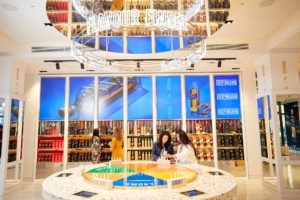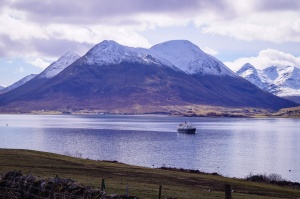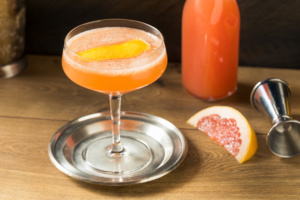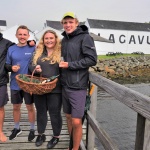A Dram on the Danube
Brian Wilson travels down the Danube to Budapest and takes us inside one of Europe's most popular Whisky trade shows.
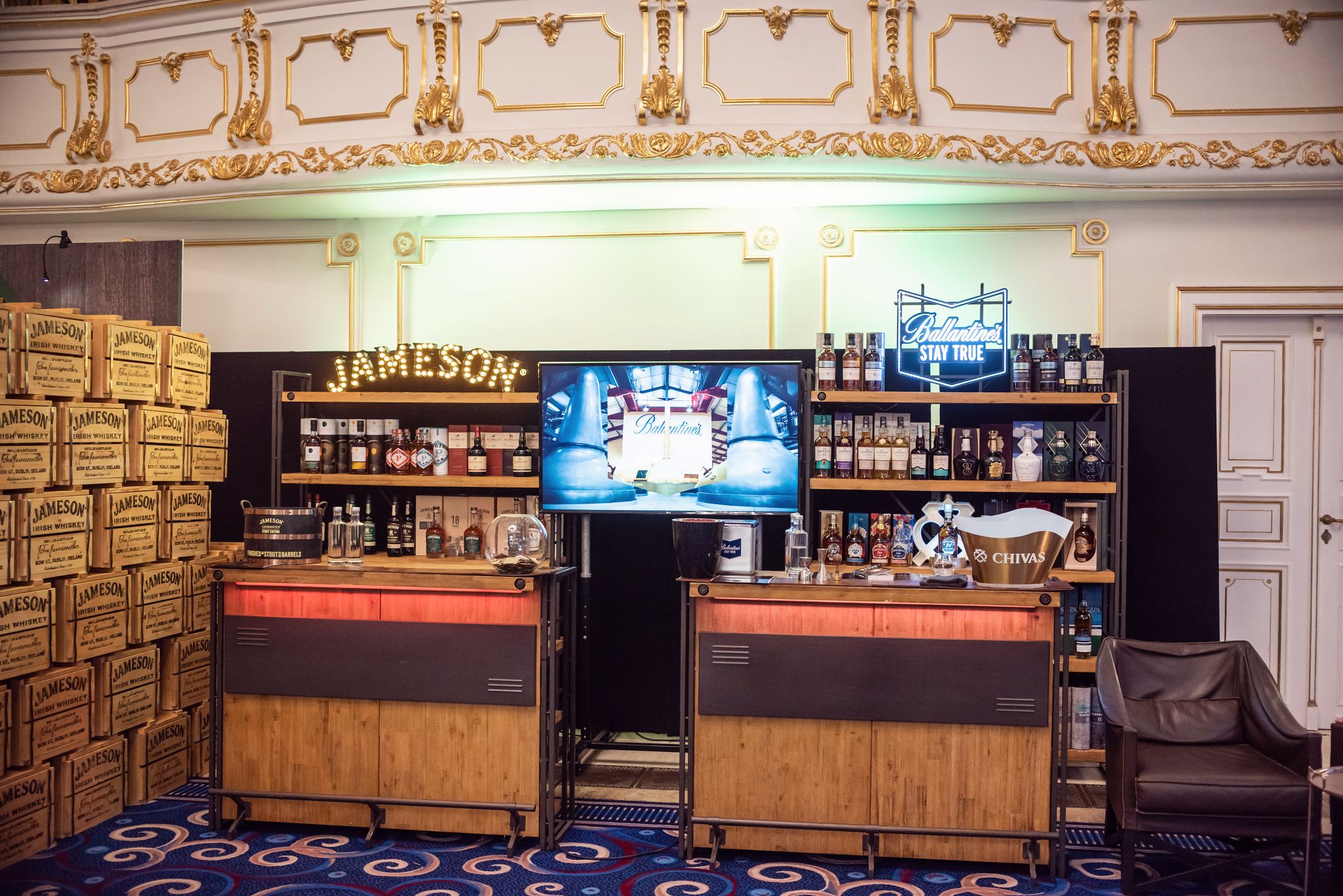 I had other reasons to be in Budapest recently - football, since you ask - you took a couple of days extra to chill in one of the great European capitals, complete with a wee cruise on the Danube. This proved to be a good call as it allowed me to stumble upon the fact that the Budapest Whisky Show was taking place that weekend.
The clincher was that the Budapest Highlanders Pipe Band was to perform, so a visit to the suitably grand surroundings of the Corinthia Hotel seemed essential. Whisky and the pipes in Budapest on a Saturday afternoon? How could one resist?
Entry proved less straightforward than might have been expected and the name of Whiskeria had to be invoked. This was because the show was a complete sell-out with 3,000 tickets sold in advance. The sheer scale of the event and the degree of interest it attracted in a city which would not normally spring to mind as a whisky stronghold surprised me and pointed to an important truth.
Shows like this across Europe play an important part not only in the marketing of whisky but also in educating the vast audience it attracts. Many of the people who queued for entry in Budapest were not there to do business, at least in the short term, but to expand their knowledge and discover brands and techniques that were new to them. They wanted to talk whisky as well as consume it.
I had other reasons to be in Budapest recently - football, since you ask - you took a couple of days extra to chill in one of the great European capitals, complete with a wee cruise on the Danube. This proved to be a good call as it allowed me to stumble upon the fact that the Budapest Whisky Show was taking place that weekend.
The clincher was that the Budapest Highlanders Pipe Band was to perform, so a visit to the suitably grand surroundings of the Corinthia Hotel seemed essential. Whisky and the pipes in Budapest on a Saturday afternoon? How could one resist?
Entry proved less straightforward than might have been expected and the name of Whiskeria had to be invoked. This was because the show was a complete sell-out with 3,000 tickets sold in advance. The sheer scale of the event and the degree of interest it attracted in a city which would not normally spring to mind as a whisky stronghold surprised me and pointed to an important truth.
Shows like this across Europe play an important part not only in the marketing of whisky but also in educating the vast audience it attracts. Many of the people who queued for entry in Budapest were not there to do business, at least in the short term, but to expand their knowledge and discover brands and techniques that were new to them. They wanted to talk whisky as well as consume it.
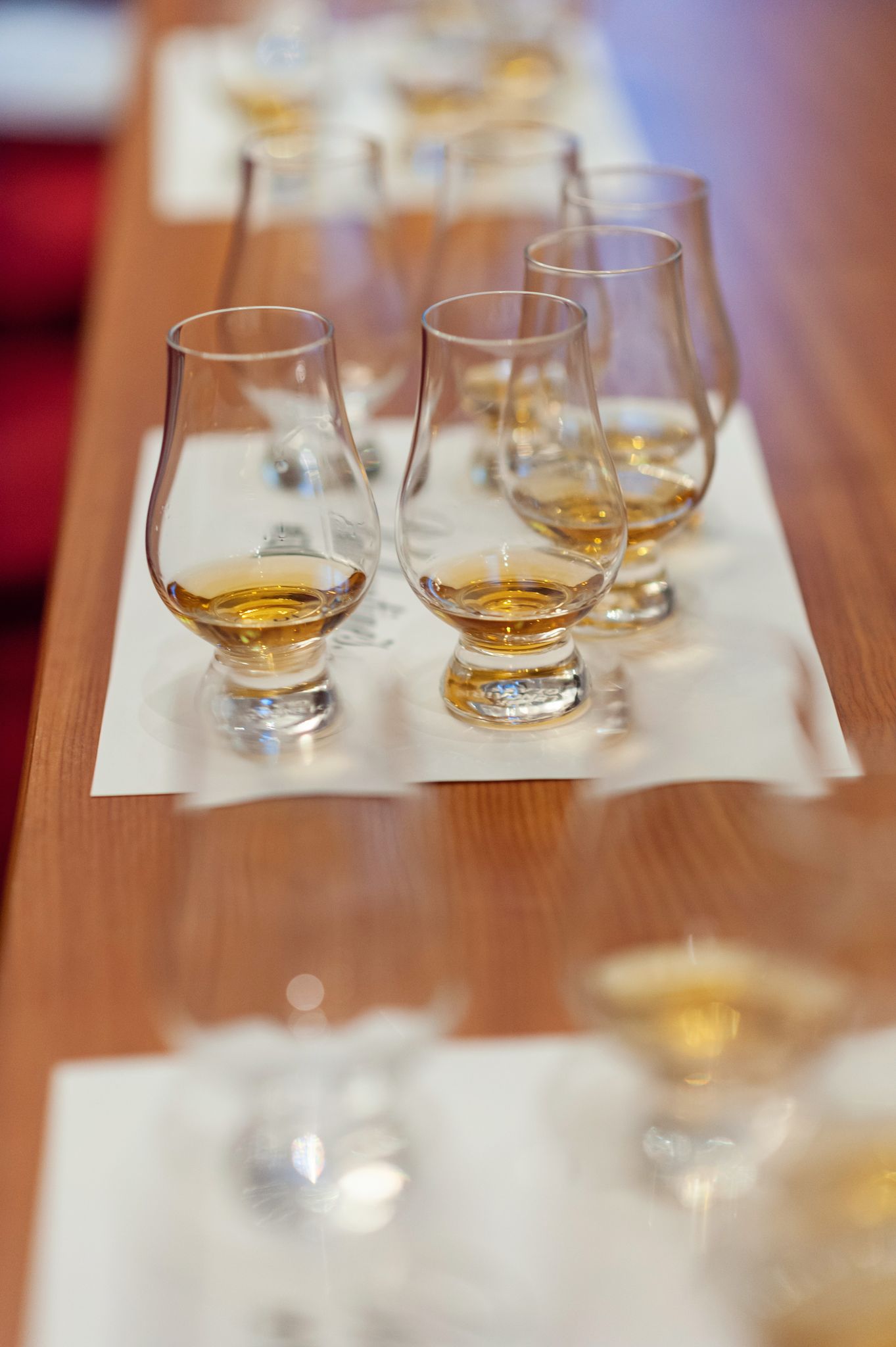 David Kovacs, business development director of the organisers, WhiskyNet, told me: "The reason we started this show in 2010 was mainly to improve the drinking culture in this country. There was a demand from people with spending power to be educated in what they were drinking and to be introduced to premium brands by those who could talk knowledgeably about them - how it is made, how it is aged, what makes it different.
"This is what WhiskyNet does. We focus 90 per cent on premium brands. Hungary is a small market but the same applies to other countries in the region. Some of them have their own shows and it is also easy to travel into Budapest. These shows introduce consumers to small brands as well as the global giants and gives them the chance to show their products on an equal footing."
That is a key point about the importance of these shows for the growing number of small, independent distilleries. Few have the resources to be directly represented, particularly in the more niche international markets. However, companies like WhiskyNet - who both run the show and also represent a wide range of brands in Hungary - can give them both the initial platform and also a relationship as agents that maintains their presence.
There were 73 exhibition stands in the Corinthia Hotel, ranging from the very large like Johnnie Walker down to the less venerable, but each in its own way very interesting and enterprising, new kids on the block looking for export outlets. In every industry, their relationship between manufacturers and in-country agents is crucial. The good ones work hard to promote the brand. The bad ones do next to nothing and are soon ditched. Everyone seemed to agree that WhiskyNet is a good one.
David Kovacs, business development director of the organisers, WhiskyNet, told me: "The reason we started this show in 2010 was mainly to improve the drinking culture in this country. There was a demand from people with spending power to be educated in what they were drinking and to be introduced to premium brands by those who could talk knowledgeably about them - how it is made, how it is aged, what makes it different.
"This is what WhiskyNet does. We focus 90 per cent on premium brands. Hungary is a small market but the same applies to other countries in the region. Some of them have their own shows and it is also easy to travel into Budapest. These shows introduce consumers to small brands as well as the global giants and gives them the chance to show their products on an equal footing."
That is a key point about the importance of these shows for the growing number of small, independent distilleries. Few have the resources to be directly represented, particularly in the more niche international markets. However, companies like WhiskyNet - who both run the show and also represent a wide range of brands in Hungary - can give them both the initial platform and also a relationship as agents that maintains their presence.
There were 73 exhibition stands in the Corinthia Hotel, ranging from the very large like Johnnie Walker down to the less venerable, but each in its own way very interesting and enterprising, new kids on the block looking for export outlets. In every industry, their relationship between manufacturers and in-country agents is crucial. The good ones work hard to promote the brand. The bad ones do next to nothing and are soon ditched. Everyone seemed to agree that WhiskyNet is a good one.
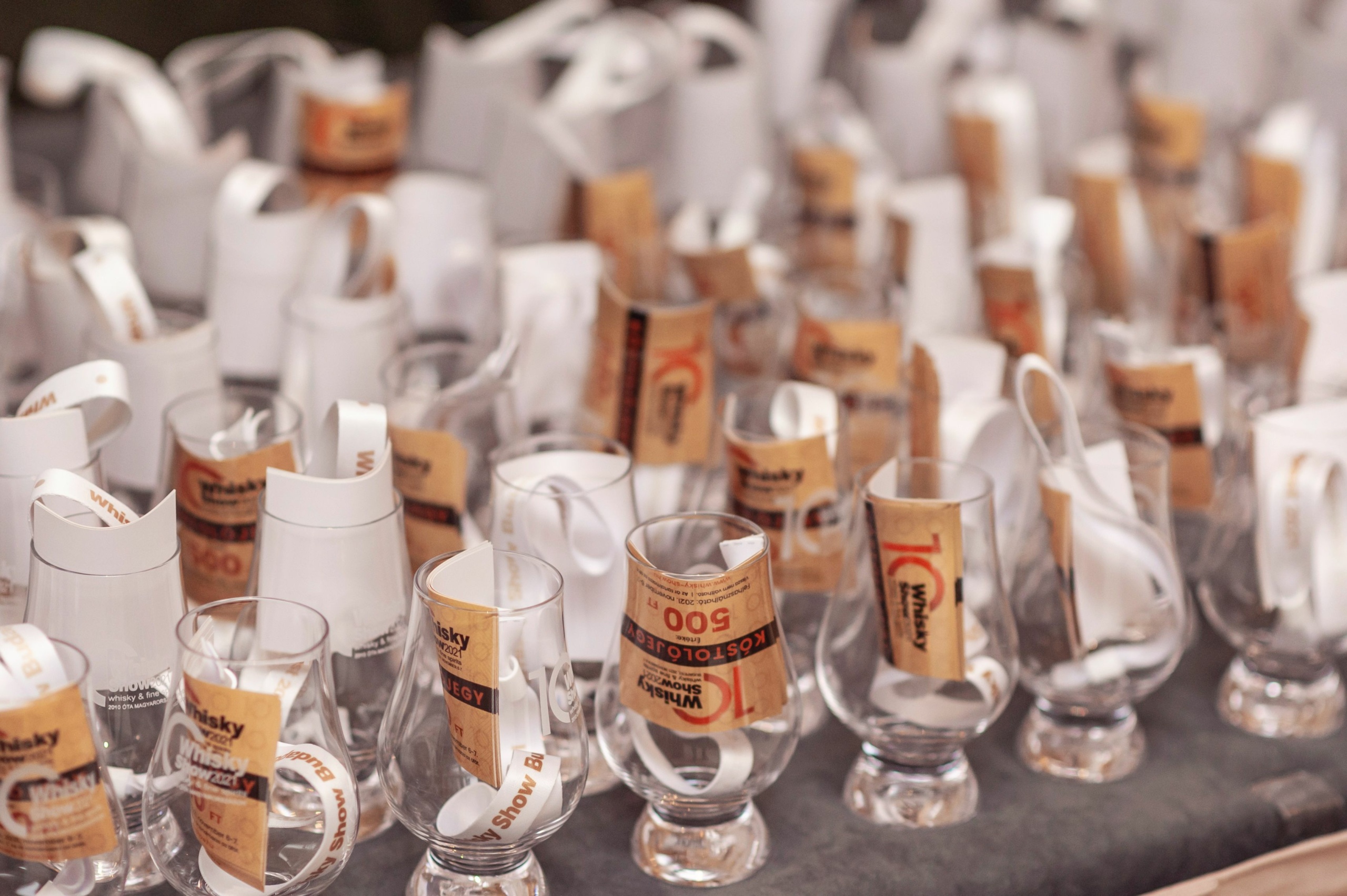 One of the newer Scottish brands at the show was Ardnamurchan, based at Acharcle in the west Highlands and owned by the independent Scottish bottlers Adelphi. The distillery has been working since 2014 and produced its own first single malt last September. Budapest was its first international outing.
"That's the first time I've had an Ardnamurchan face to face with anyone in Europe," said Connall MacKenzie, the sales director. "We've all seen shows at various levels but this one was up there as one of the best. Hungary is a very well-educated market for Scotch malt whisky. The masterclasses filled the rooms and people really wanted to learn more and understand our brand."
Over the past Covid-stricken year, Connall reckons he has done almost 100 tastings by Zoom. "It works pretty well if everyone is drinking the same liquid, but there is nothing like personal contact and that is why these shows are so important. They really do take brands like our own into markets it would otherwise be difficult to reach, and they give us consumer feedback, which is so important."
The Budapest evet also served as a reminder that whisky is a truly international business at the producer, as well as consumer, end. Just as in Scotland, there is currently a new wave of Irish whiskey distilleries. This fact has been cottoned onto by WhiskyNet and Ireland was "guest of honour" at this year's event, in recognition of the flow of new brands that are about to come on stream - each one of them looking for markets large and small.
One of the newer Scottish brands at the show was Ardnamurchan, based at Acharcle in the west Highlands and owned by the independent Scottish bottlers Adelphi. The distillery has been working since 2014 and produced its own first single malt last September. Budapest was its first international outing.
"That's the first time I've had an Ardnamurchan face to face with anyone in Europe," said Connall MacKenzie, the sales director. "We've all seen shows at various levels but this one was up there as one of the best. Hungary is a very well-educated market for Scotch malt whisky. The masterclasses filled the rooms and people really wanted to learn more and understand our brand."
Over the past Covid-stricken year, Connall reckons he has done almost 100 tastings by Zoom. "It works pretty well if everyone is drinking the same liquid, but there is nothing like personal contact and that is why these shows are so important. They really do take brands like our own into markets it would otherwise be difficult to reach, and they give us consumer feedback, which is so important."
The Budapest evet also served as a reminder that whisky is a truly international business at the producer, as well as consumer, end. Just as in Scotland, there is currently a new wave of Irish whiskey distilleries. This fact has been cottoned onto by WhiskyNet and Ireland was "guest of honour" at this year's event, in recognition of the flow of new brands that are about to come on stream - each one of them looking for markets large and small.
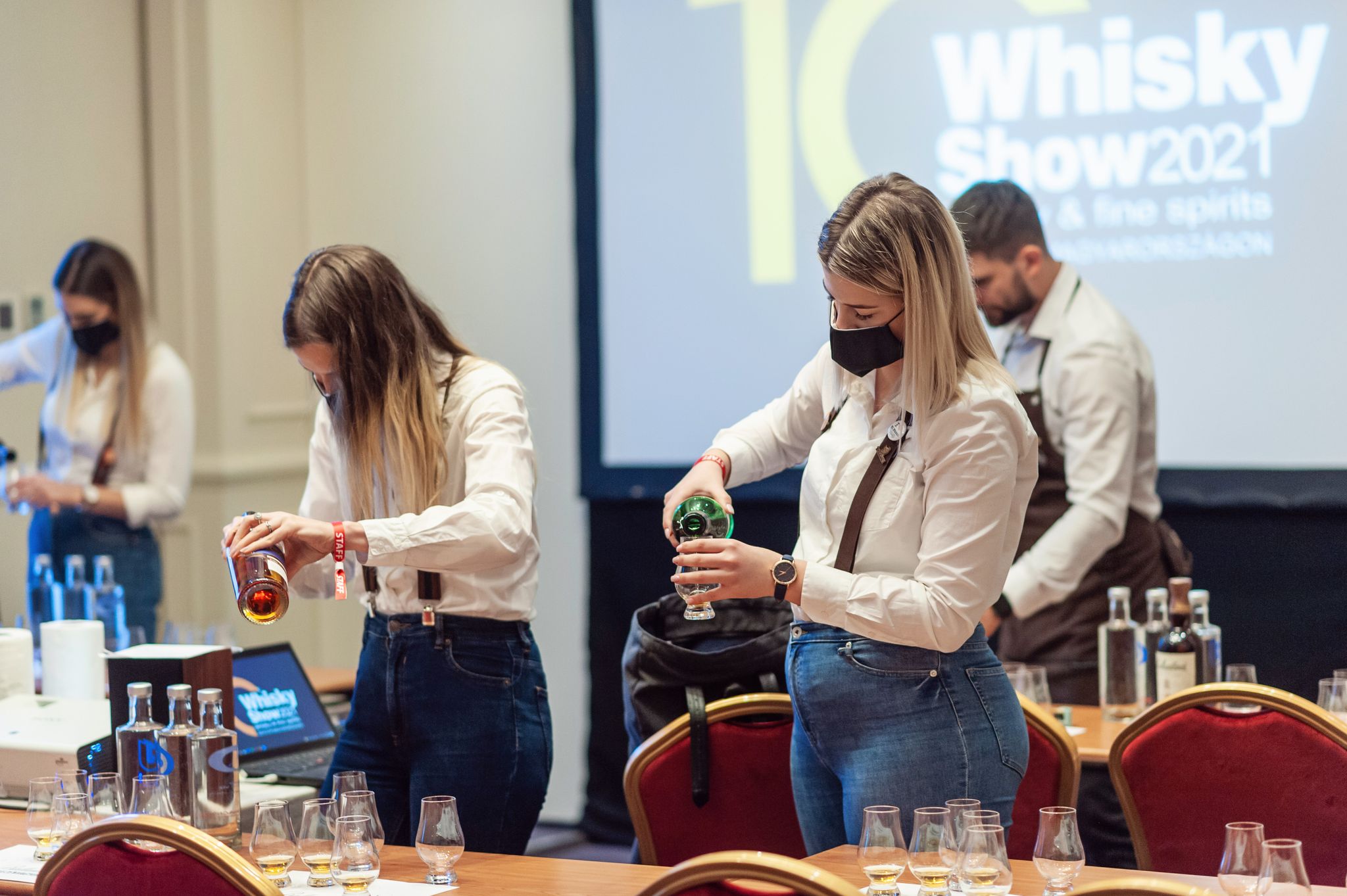 Michael Morris, the marketing director of Hinch Distillery in County Down said: "Irish whiskey is the largest growth category in the world. The year before Covid, I signed up to build the international business. We are on a big push to set up a distributor network and WhiskyNet in Hungary fits into that. They invited us to be at their show in Budapest and the feedback was tremendous."
Shows like this one, he says, "are probably the most important channel to drive new business in European markets." Michael reckons that in a normal year, they will attend around 15 international shows as well as ones in the UK and Ireland. "They give us an opportunity to be on a level playing field with the big boys and to show customers that there is something else beyond the brands they know."
To complete the Celtic trinity, Penderyn from Wales were on a similar mission to inform and build brand awareness. The company which has been making Welsh whisky and other drinks at a site within The Brecon Beacons National Park since 2004 has just opened a second distillery to the north in Llandudno and is planning a third in Swansea. They export to 45 countries.
Simon Roffe, their marketing director, said: "Events like Budapest are important to us. You get the chance to talk to people and it doesn't require massive investment to have a presence." It cost them around €3000 to be there - the kind of overhead smaller brands can take a chance on.
Michael Morris, the marketing director of Hinch Distillery in County Down said: "Irish whiskey is the largest growth category in the world. The year before Covid, I signed up to build the international business. We are on a big push to set up a distributor network and WhiskyNet in Hungary fits into that. They invited us to be at their show in Budapest and the feedback was tremendous."
Shows like this one, he says, "are probably the most important channel to drive new business in European markets." Michael reckons that in a normal year, they will attend around 15 international shows as well as ones in the UK and Ireland. "They give us an opportunity to be on a level playing field with the big boys and to show customers that there is something else beyond the brands they know."
To complete the Celtic trinity, Penderyn from Wales were on a similar mission to inform and build brand awareness. The company which has been making Welsh whisky and other drinks at a site within The Brecon Beacons National Park since 2004 has just opened a second distillery to the north in Llandudno and is planning a third in Swansea. They export to 45 countries.
Simon Roffe, their marketing director, said: "Events like Budapest are important to us. You get the chance to talk to people and it doesn't require massive investment to have a presence." It cost them around €3000 to be there - the kind of overhead smaller brands can take a chance on.
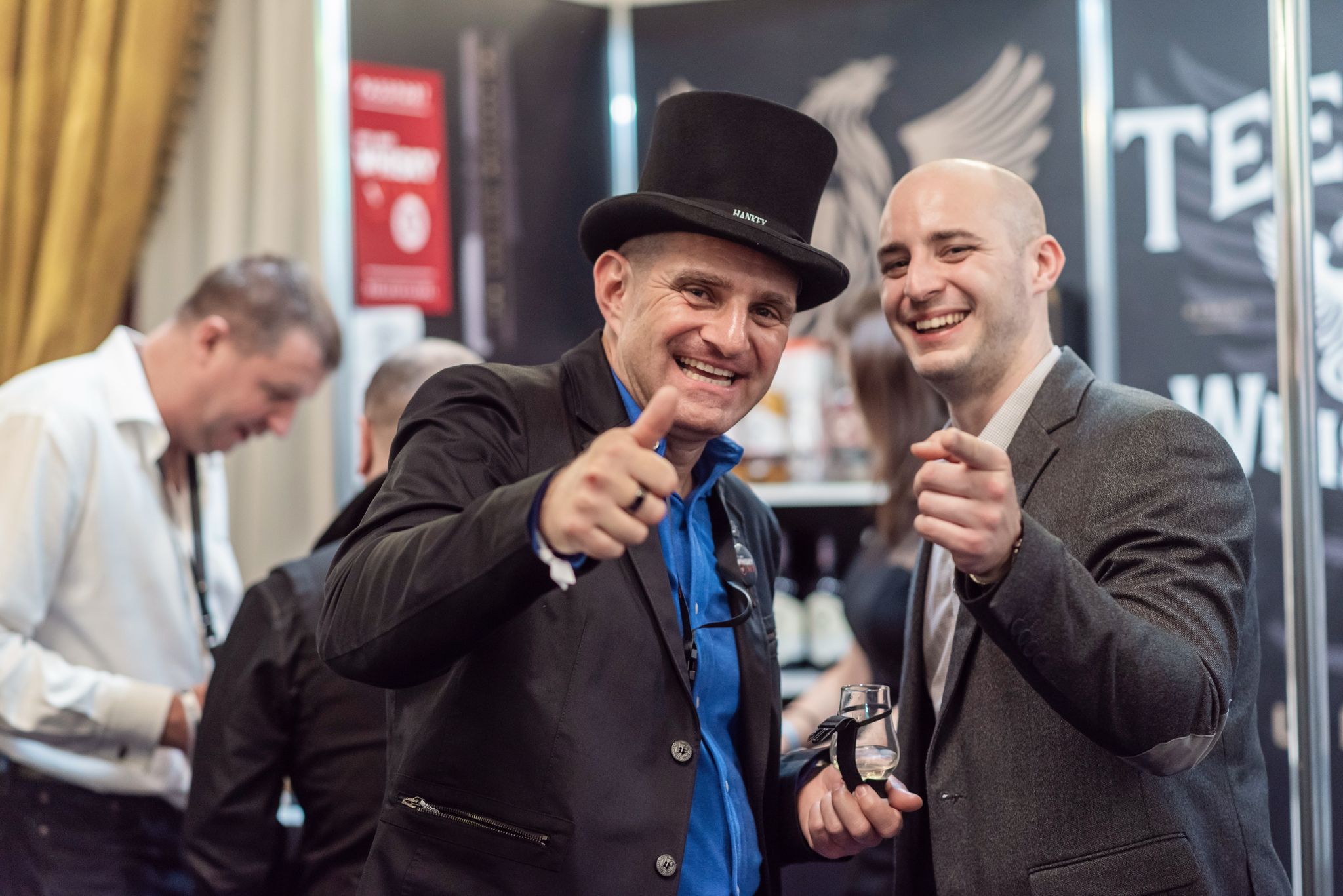 These are the big differences, says Simon, between this kind of event and the giant trade shows, like one in Dusseldorf which attracts more than 50,000 people, in a much more business-driven setting. And there are also different measures of success. In addition to greeting customers old and new, Penderyn sold out all the stock they had taken with them to Budapest on the first day, leaving none for the second. They won't make that mistake again!
It would be remiss not to mention that Hungary has a whisky of its own. It is called Gemenc, after the region in which it is located, in the south of the country close to the River Danube. It's a farm-based operation and the man behind it, Lajos Szoke, has a very simple explanation of why he created his distillery. "All my neighbours were making palinka (Hungarian fruit brandy), so I thought I'd do something different." What better reason?
These are the big differences, says Simon, between this kind of event and the giant trade shows, like one in Dusseldorf which attracts more than 50,000 people, in a much more business-driven setting. And there are also different measures of success. In addition to greeting customers old and new, Penderyn sold out all the stock they had taken with them to Budapest on the first day, leaving none for the second. They won't make that mistake again!
It would be remiss not to mention that Hungary has a whisky of its own. It is called Gemenc, after the region in which it is located, in the south of the country close to the River Danube. It's a farm-based operation and the man behind it, Lajos Szoke, has a very simple explanation of why he created his distillery. "All my neighbours were making palinka (Hungarian fruit brandy), so I thought I'd do something different." What better reason?
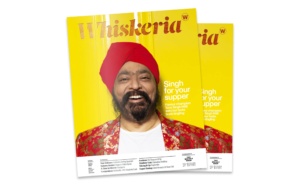 The original feature is from the Spring 2022 edition of Whiskeria, delivered to the door of W Club subscribers and also free with any Whisky Shop purchase in store or online. Click here to read the full Spring 2022 issue of Whiskeria online for free.
The original feature is from the Spring 2022 edition of Whiskeria, delivered to the door of W Club subscribers and also free with any Whisky Shop purchase in store or online. Click here to read the full Spring 2022 issue of Whiskeria online for free. 4.7/5 with 10,000+ reviews
4.7/5 with 10,000+ reviews
